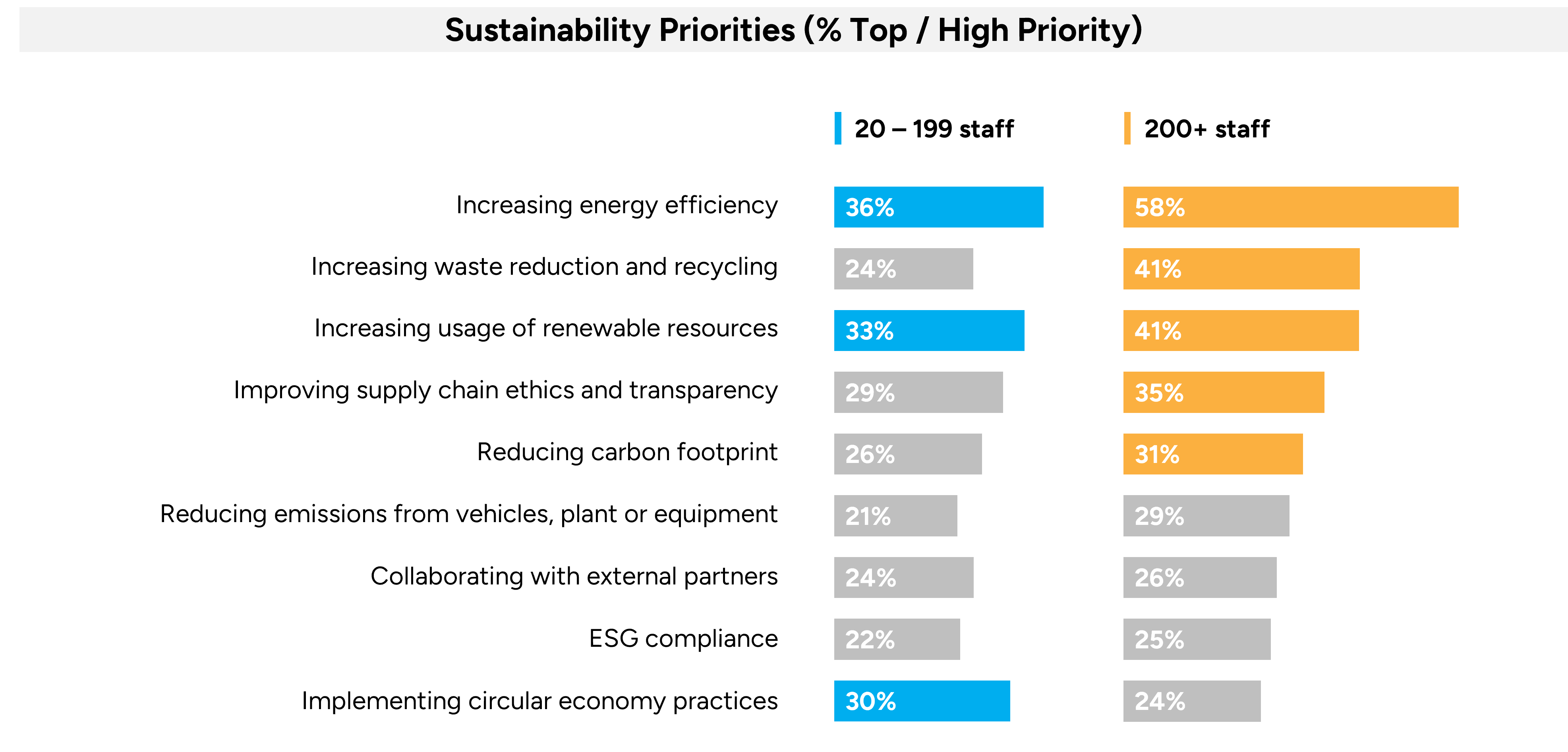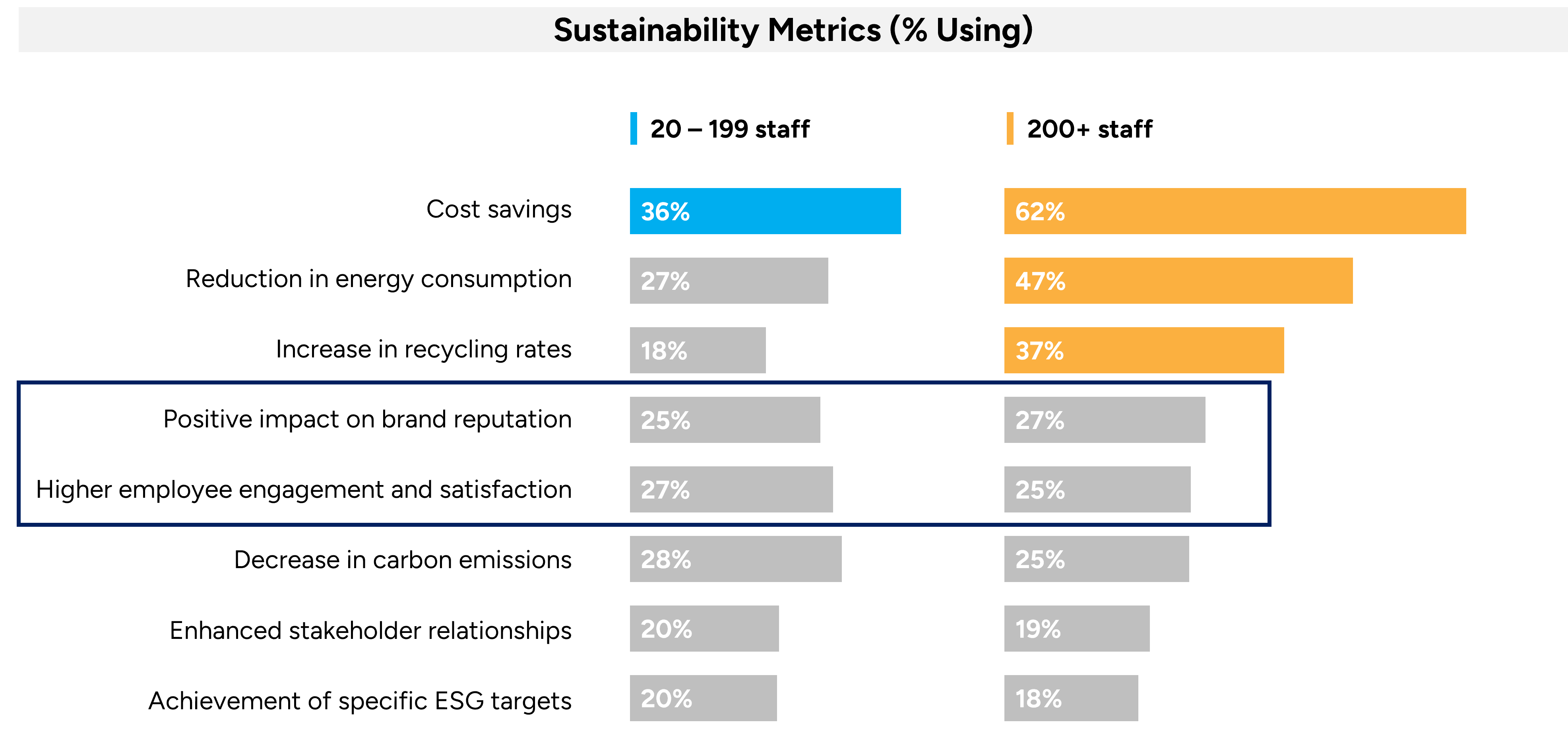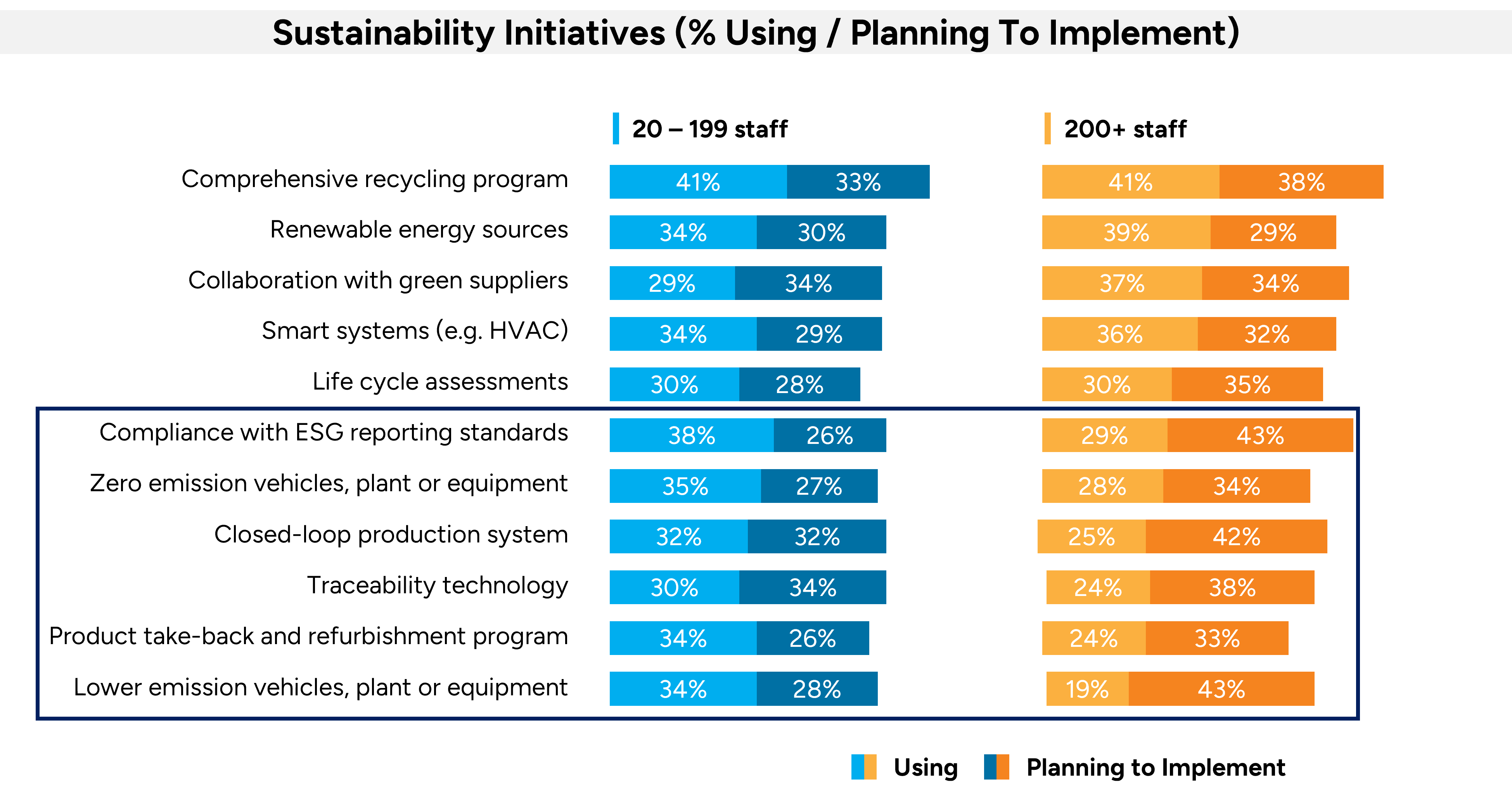Author: Ben Selwyn | Posted On: 11 Oct 2023
Sustainability is a critical issue for Australian businesses, as the world faces the dual challenges of climate change and resource scarcity. While there’s an ecological imperative here, there’s also a financial one, with reduced energy consumption, waste production, and reliance on fossil fuels helping businesses reduce operating expenses, and position themselves for success.
Data from the September edition of the Fifth Quadrant Business Tracking Study reflects this, showing that sustainability is a high priority for Australian businesses in the year ahead. Importantly, while increased energy efficiency and usage of renewables consistently sat at the top of the list, businesses are also considering the bigger picture, looking for opportunities to work with suppliers on ethical approaches to sourcing and selling.
We can also see some variation by size, with larger organisations (with 200+ employees) setting a longer list of priorities in place for the year ahead. This likely reflects the greater resources they can allocate to the issue, as well as the higher level of scrutiny many will be facing from customers and stakeholders.
what are the sustainability Priorities for the next 12 months?

It’s also positive to see that businesses are considering their desired outcomes, putting metrics in place to measure and validate the success of their initiatives. As can be seen below, larger businesses are again likely to have a broader perspective, typically looking beyond a straight measure of financial savings.
Conversely, smaller businesses are more likely to focus on a few key metrics, with cost savings standing out at the top of their list (likely because they are more significantly impacted by the high upfront costs that can often be associated with sustainability initiatives).
While there are evidently significant differences by size, both smaller and larger businesses are equally likely to consider the reputational impact of a positive stance on sustainability. Around one in four are tracking the impact of their initiatives on brand reputation and employee engagement, suggesting it’s more a reflection of their innate ethos than any external factor.
what metrics are businesses using to measure sustainability?

While larger businesses generally appear more advanced in their sustainability activities, they lag their smaller counterparts when it comes to putting plans into action. As shown below, larger businesses are more likely to still be in the planning phase, while smaller businesses have already implemented a wider range of options (even if they’re still testing as against reaching wider roll-out).
Overall, this suggests that smaller businesses are better positioned to take action on sustainability, as they are likely to have a streamlined decision-making hierarchy that can more easily sign off on potential solutions.
what sustainability Initiatives are businesses implementing?

Drawing from this, a key challenge is finding the balance between swift and considered action. While it is important not to delay action, this needs to be carefully considered and grounded in a detailed understanding of how it fits into the overall strategy, and the desired outcomes.
As a larger organisation, this means reviewing planning and approval processes to ensure that they aren’t creating excessive barriers to action, while smaller ones should be reviewing initiatives regularly to ensure that the potential for more significant longer-term change isn’t being lost at the expense of ‘quick wins’.
Regardless, businesses have a complex framework to consider when considering sustainability initiatives, as they seek to reduce environmental impact, reduce costs, and enhance stakeholder relationships (and overall brand reputation).
If you’ve enjoyed this piece, keep an eye out for our other content and newsletters.
Also remember that our business tracking research runs monthly, so feel free to get in touch if you’ve got questions that you’d like answered.
Posted in Transport & Industrial, B2B, Built Environment, QN, TL

